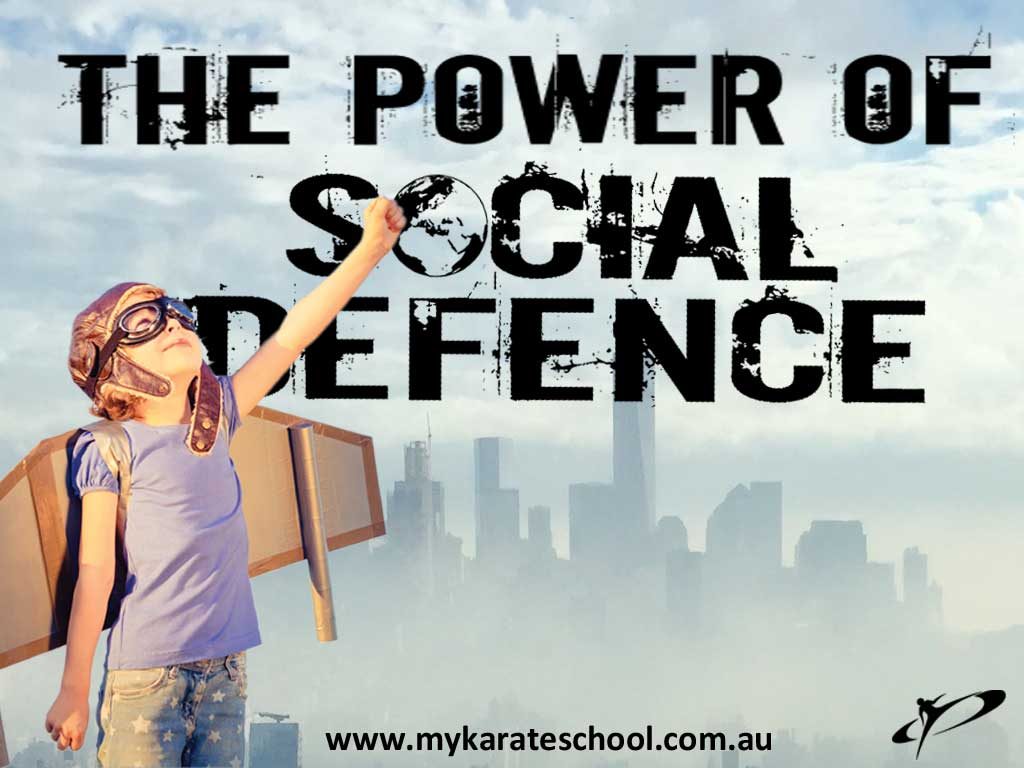As you may remember from a previous blog post, social defence is the name we give to building and developing social relating skills: social interactions, social skills, communication, and managing conflict. This means getting along better with others, dealing with disagreements, avoiding negative situations, and not allowing others to affect us negatively. A strong focus involved in developing this skill is learning how to control our actions (self control), and how to deal with other people’s actions. Learning how to manage emotions and actions in social interactions and dealings with others is a life skill that will both build our children’s resilience as they face challenging situations, as well as increase their social confidence as they develop into adolescence and adulthood.
“At karate we learn how NOT to fight. We learn how to walk away.”
This is especially true when children successfully negotiate challenging situations using their social defence skills. An example of one of our Super kids using these skills in their dealings with others was shared with us last year. The eight-year old student had a friend over, and had asked permission to demonstrate their kata and show some karate moves. After the demonstration, the child was challenged by the friend, suggesting that although our student knows Karate, the friend was bigger and stronger, and could definitely beat them in a “real fight”. Our superhero diffused the challenge immediately, saying, “Yes, you would beat me! Because I don’t know how to fight. At karate we learn how NOT to fight. We learn how to walk away.” They were able to live this learning in action, by changing the topic and continuing to play with the child after the challenge. The confidence that we see emerging in our students is clearly demonstrated in terms of how they handle situations by being able to use their “karate” skills in the most ideal way – not at all.
We want them to know themselves well enough to choose their actions confidently and wisely in a social situation
We want our children to be well equipped to manage conflict and challenges they face in their life, such as how they deal with arguments, being assertive rather than aggressive, permissive or passive in social challenges, and teaching them how to talk about the difficulties they may be having. We also want them to know themselves well enough to choose their actions confidently and wisely in a social situation, rather than reacting to the emotional response the situation triggers. Superheroes don’t act in anger, in upset, or without conscious thought. They act from a solid base of strong personal values. Knowing themselves, and choosing their actions rather than falling into a habit of automatic emotional responding is an extension of understanding our values and identity, and contributes to healthy social and personality development.
